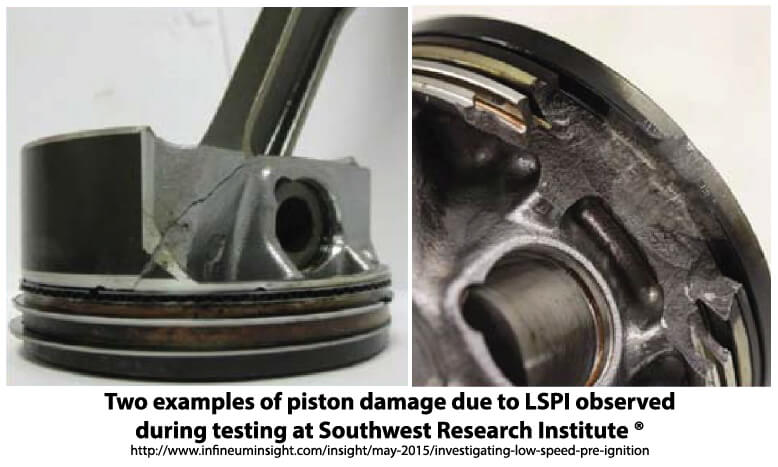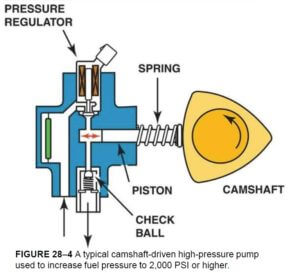Conventional oil instead of synthetic
Can I use conventional oil instead of synthetic motor oil?
Don’t use conventional oil instead of synthetic oil
Many new car owners think they can use conventional oil instead of synthetic oil if they change it more often than the car maker’s recommendation. That’s a HUGE mistake that can actually damage your engine. The car owners that try that usually install conventional oil because it’s cheaper than synthetic oil. They figure they can compensate by changing it a bit more often. But that’s faulty thinking. Using conventional oil in a modern engine that employs gasoline direct injection (GDI) and variable valve timing can cause significant engine damage. Car makers specify synthetic oil for a reason.
Convention oil and synthetic oils are different
Most conventional oils have a higher volatility rating than synthetic oil. That means it vaporizes more quickly in a hot engine. Think of the volatility rating like making soup or stew on your stove. As you heat up the mixture, the water boils off and you’re left with a thicker gravy-like substance. Using conventional oil in a modern engine will cause the lighter components to vaporize, leaving you with much thicker oil that won’t lubricate as well. The higher vaporization also means that your engine will be ingesting far more combustible vapor into the intake through the positive crankcase ventilation (PCV) system. This oil vapor consists of hydrocarbons that will build up on the engine’s intake valves. In other words, you’re causing your own carbon buildup problems.
Synthetic oil has much a lower volatility rating, so you’ll have less vaporization, greatly reducing carbon buildup problems.
Conventional oil can cause low speed pre-ignition (LSPI)
Low speed pre-ignition is a growing problem with GDI engines, but it becomes a much bigger problem when you use conventional oil instead of synthetic oil. LSPI occurs during low engine speeds when the engine is under load when the air fuel mixture ignites before the spark plug fires. Car makers are finding that small droplets of motor oil on the cylinder walls and in the piston rings can auto-ignite before the spark plug fires.

LSPI can occur in a GDI engine because the direct injectors force fuel into the combustion chamber at pressures up to 2,000-psi while the piston is on the compression stroke. Injecting fuel at extremely high pressures eliminates the need for premium fuel because the high pressure fuel droplets vaporize and cool the air/fuel mixture that’s building heat due to compression. High pressure fuel injection actually prevent detonation.
However, when you combine high pressure fuel injection with boost pressure from a turbo, you still wind up with much higher compression cycle pressures. If you use conventional oil instead of synthetic oil, the higher oil volatility introduces a new variable that engineers didn’t build into the equation.
LSPI combustion causes severe engine knock which can damage piston ring land areas and even break off portions of the spark plug electrodes and insulators.
Even the highest quality synthetic oils can produce LSPI on occasion. That’s why car makers are working hard to improve the next generation GF-6 oils. However, if you use conventional oil instead of synthetic oil on your GDI engine, you greatly increase the chances of LSPI and engine damage
Engine oil jets
Many car makers incorporate oil jets into their engine design to spray oil onto the bottom of the pistons to increase cooling and reduce carbon buildup on the piston crown. These oil jets are designed to spray a specified oil amount based on a predicted oil viscosity. If you use conventional oil instead of synthetic oil, you’ll wind up with a much thicker viscosity after the lighter fractions vaporize from the oil. The thicker oil won’t spray or cool as well, causing more piston wear and more crown carbon deposits.
More soot with conventional oil
All engines generate soot caused by burning engine oil. But synthetic oils, because they have lower vaporization, generate less soot. If you substitute conventional oil in place of synthetic, your engine will generate more soot. Since all engines have blowby, your engine will accumulate more soot, which causes more wear.
Conventional oil causes high pressure fuel pump and camshaft wear
GDI engines have two fuel pumps; one in the tank to raise pressure to around

High pressure fuel pump and camshaft lobe wear
40-50-psi to force fuel to the high pressure fuel pump, and a second pump that raises pressure to up to 2,000-psi. The high pressure fuel pump is driven by a triangular lobe on the camshaft. Due to the extreme forces on the triangular lobes, proper lubrication is critical. The oil must be at the right viscosity to maintain the oil film and the oil must flow at the proper rate to replenish the oil that’s squeezed out during contact. Conventional oils can’t maintain the proper viscosity, film strength or flow.
GF-6 and Dexos Gen 2 oils combat LSPI
GF-6 and GM’s Dexos Gen 2 oils are specifically designed to combat LSPI. The new oils are designed to improve oxidation resistance, have better deposit control, resist LSPI, reduce oil aeration.
©, 2018 Rick Muscoplat
Posted on by Rick Muscoplat